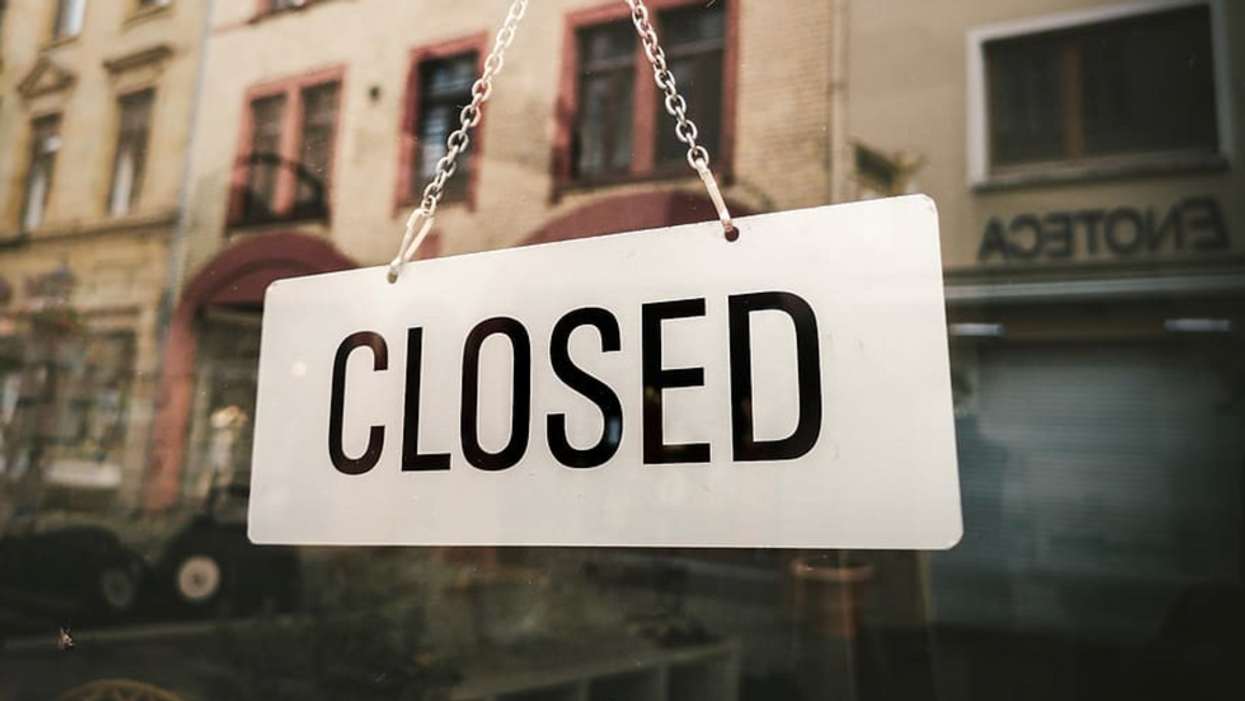'Every node of this supply chain is maxed out' — and the consequences could hit you at home


Bare toilet paper shelves in supermarkets were a big story early in the coronavirus pandemic but they may not remain a thing of the past, and consumers are being warned to do their holiday shopping early—like, now—thanks to supply chain problems. And even then, you might have to settle.
"We're getting into the full peak season," Gene Seroka, executive director the Port of Los Angeles, told the Los Angeles Times. "Every node of this supply chain is maxed out." That means 89 container ships waiting to be unloaded at the ports of Los Angeles and Long Beach, and cargo containers piled up on the docks at those ports, which handled nearly one-third of the nation's imports last year. It means a shortage of those container ships after many were put out of service early in the pandemic.
Companies are having to figure out how to ship imports that they can't send on actual ships. Dollar Tree "previously assumed that ocean carriers would fulfill 85% of their contractual commitments—already a problematic situation—along with higher rates. Now the company projects that its regular carriers will fulfill just 60% to 65% of their commitments," Retail Dive reported.
There's more. There are hold-ups in warehousing and land transport because it's hard to find workers at the wages companies are offering, or companies (Amazon) are burning through workers too fast to be sustainable in the long run. Consumer demand has dropped and risen with the waves of the pandemic, making things unpredictable. And businesses have found out that the just-in-time supply chains they've spent years honing to save money be ensuring they never have anything extra are also vulnerable supply chains. That hit Toyota hard, when one COVID-19 case in an auto supply manufacturer in Vietnam was the straw that forced Toyota to cut its September output by 40%.
You might see the outcome of supply chain problems on the shelves of your local grocery store. Some stores are limiting purchases of certain items—including, yes, toilet paper. But also peanut butter, pasta, and more. Then there's the holidays.
"I'm afraid there is simply not enough time to get products on the shelf this year," Isaac Larian, chief executive of toy manufacturer MGA Entertainment, told The Washington Post at the beginning of September. "The holidays are going to be very tough and, frankly, a lot of families are not going to be able to get the toys they want."
And, as usual, this won't hit all families equally. Families that have the money lying around can shop early. Their problem will be how to keep all those gifts hidden for months without being found. Families that save until the last minute to be able to afford holiday gifts will be the ones most affected when popular toys sell out, or when prices go up.
For a clear look at how this all works, check out this Twitter thread in which New Orleans indie bookstore Tubby & Coo's recently laid out how supply chain issues are affecting its business—and others.
PAPER: There's a paper shortage, which is driving up costs. Demand for wood is SUPER high (you may have heard about lumber shortages), & there isn't enough to go around, which causes delays in obtaining materials to make paper AND increases the cost.— Tubby & Coo's (@Tubby & Coo's) 1631567115
There's also a disruption in supply from foreign mills, because the cost to ship from Asia (where we've gotten a lot of paper in the past) has more than tripled. (Fun fact: the paper shortage also affects things like paper towels and toilet paper!)— Tubby & Coo's (@Tubby & Coo's) 1631567116
Also, cardboard is getting more scarce because of all these same reasons, which means less materials for boxes.— Tubby & Coo's (@Tubby & Coo's) 1631567116
With printing presses getting busier as the year goes on, they will become backed up. This on top of the loss of a couple major book manufacturers that closed in the past couple years means that all these book projects (the same amount or more) are going through a smaller funnel.— Tubby & Coo's (@Tubby & Coo's) 1631567117
SHIPPING: There are lots of dockworkers in quarantine, which means shipments from overseas are delayed. There's been a shipping container shortage as well. All of this has contributed to a huge spike in costs of international shipping, & many publishers print books overseas.— Tubby & Coo's (@Tubby & Coo's) 1631567117
As you can see, literally every piece of the supply chain is disrupted in some way. This means major delays in getting books printed & shipped at both ends of the process, which affects pretty much any order.— Tubby & Coo's (@Tubby & Coo's) 1631567118
All this to say: PLEASE ORDER NOW for the holidays. And PLEASE do not get angry at or blame bookstores (especially indies) or bookstore workers. This is in no way our fault, and we are doing our absolute best. These delays are happening in ALL retail. Don't be a dick.— Tubby & Coo's (@Tubby & Coo's) 1631567119